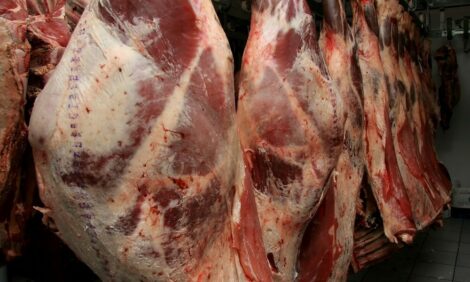



Hay shortage drives producers’ decisions
US - Mississippi livestock producers saw it coming, but the hay shortage is forcing some tough decisions that may have long-term repercussions on the health, performance and profitability of their animals.“Some producers are now looking to cull cows that they should have culled on the front end. Those who cull will end up with a better herd than before if they treat the situation as an opportunity to improve herd genetics,” Parish said. “Now, producers have to make sure their cattle are in good enough condition for spring breeding in April and May. Once they calve, it is hard to get weight on them to be ready to breed the next season.”
Parish expressed concerns that conception rates this spring will be lower because of the condition of the cattle.
“Producers should not keep bulls in the pastures longer to attempt to breed later. That will make a bad situation worse,” she warned. “Sticking with a set calving period helps producers manage their nutritional program better. Otherwise, they will underfeed some and overfeed others when feed costs are high.”
A set calving period also helps producers better manage their marketing plans and health programs. Producers reduce their labor costs when they work all their cattle at the same time.
Parish said recent reports from the National Agricultural Statistics Service indicate a loss of 8,000 head of beef cows in Mississippi from January 2006 to January 2007. Much of Mississippi’s 2006 hay also left the state for places like Texas where producers would pay a lot more because of their own drought conditions.
Some Mississippi cattle producers are looking at alternative feeds, such as cottonseed hulls, which are bulky and require special handling.
“Cottonseed hulls can be expensive, but they are a good roughage substitute for stretching hay supplies,” Parish said. “At least cattle producers have a variety of by-product feed and marketing options.”
Extension equine specialist Preston Buff said high-fiber roughage should be the majority of a horse’s diet. Concentrate feeds, grains and pellets can supplement and extend hay supplies.
Source: Delta Farm Press


